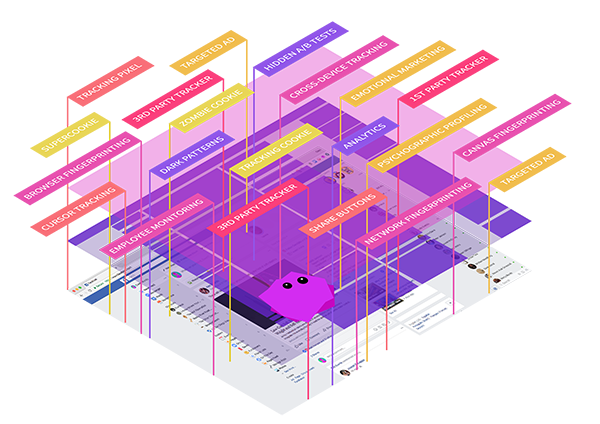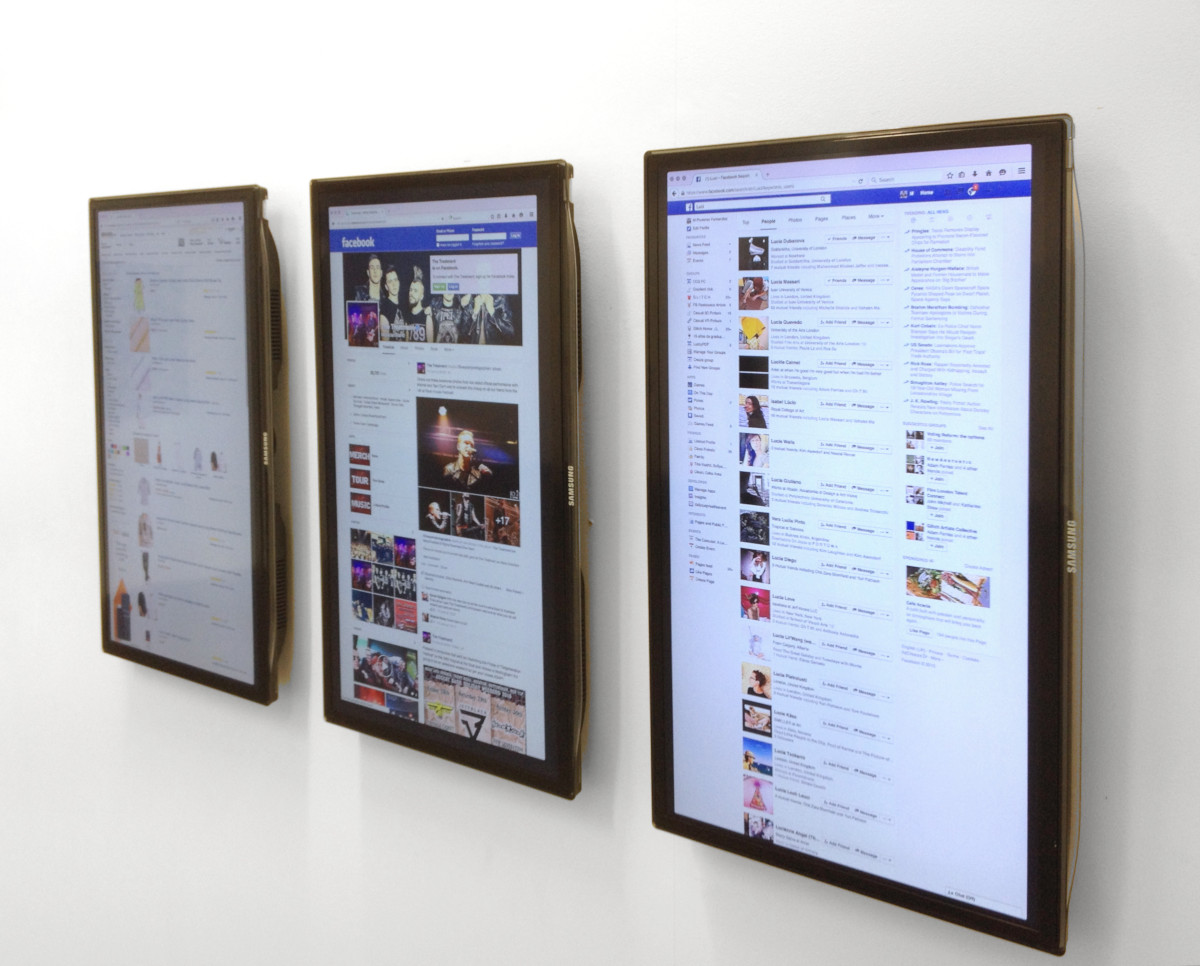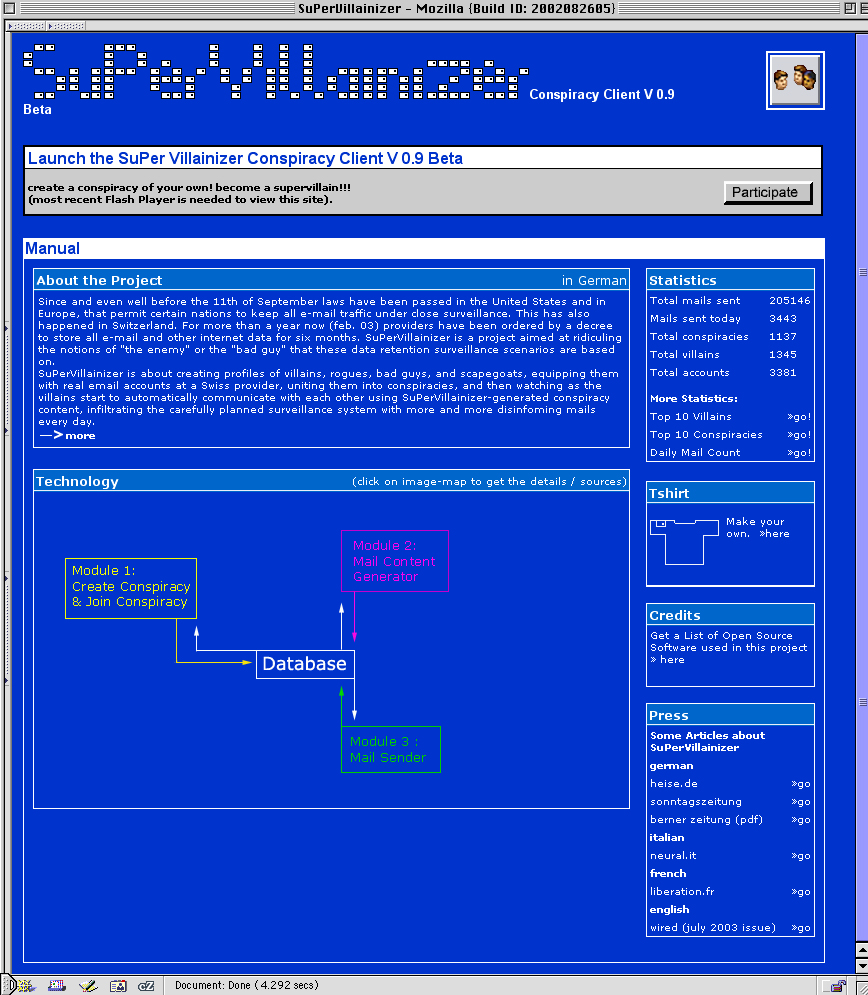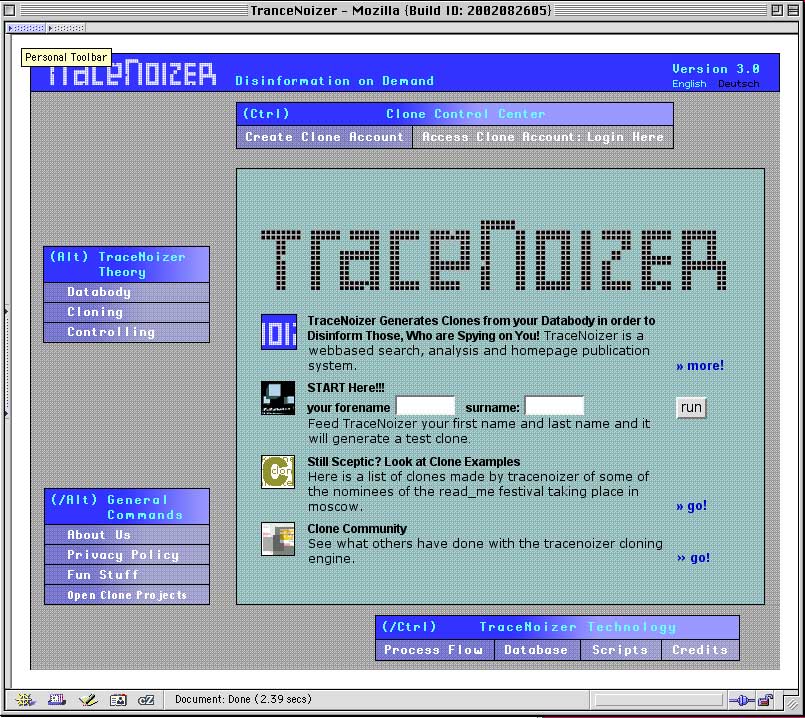Art & Surveillance Capitalism
Tally Saves the Internet - Owen Mundy ()#
“Tally Saves the Internet is a browser extension that transforms data advertisers collect into a multiplayer game. Once installed, a friendly pink blob named Tally lives in the corner of your screen and warns you when companies translate your human experiences into free behavioral data. When Tally encounters “product monsters” (online trackers and their corresponding product marketing categories) you can capture them in a turn-based battle (e.g. “Pokémon style”) transforming the game into a progressive tracker blocker, where you earn the right to be let alone through this playful experience.” - author.

https://owenmundy.com/site/tally-saves-the-internet
Sociality - Paolo Cirio (2018)#
In Sociality, the artist Cirio exposed the mechanisms of surveillance capitalism by documenting and reimagining over 20,000 patents for technologies designed to manipulate social behavior. Hacked from Google Patents, these inventions were rated and transformed into visual compositions, showcased online and in large-scale installations, posters, and a coloring book. By inviting public scrutiny and critique of these tools, the artwork merges dystopian commentary with a call for participatory governance, turning intellectual property into a medium for democratic oversight. Through abstract flowcharts, it confronts viewers with the scale and complexity of technologies programming society.

Like-Un-Like - Metazoa [Barbora Trnková, Tomáš Javůrek] (2019)#
https://datatata.info/like-un-like/
Jennifer Lyn Morone™ -#
Fake artistic startup which enables you take ownership of your own data and become the CEO of yourself. Read more at the project page.
Give Me My Data - Owen Mundy (2009-2016)#
Give Me My Data was a Facebook application by Owen Mundy that helped users export their data out of the Facebook platform. Reasons included making artwork, archiving and deleting your account, or circumventing the interface Facebook provides. Data could have been exported in CSV, XML, and other formats.
https://owenmundy.com/site/give-me-my-data
How Not to be Seen: A Fucking Didactic Educational .MOV - Hito Steyerl (2013)#
Hito Steyerl’s video works examine how images reflect and shape the systems of the contemporary world. In a satirical take on surveillance, she offers tongue-in-cheek strategies for staying “unseen” in an age of hyper-visibility. The work juxtaposes acts of war with digital tools, overlaying a computer desktop onto the landscape to reveal the ties between violence, communication, and entertainment. Steyerl asks, “How do people disappear in an age of total over-visibility? Do they become images themselves?”
Vibe Check - Lauren Lee McCarthy & Kyle McDonald#
https://lauren-mccarthy.com/Vibe-Check
Counter strategy: Obfuscation#
Go Rando - Ben Groser#
Decoy Browsing Triptych - Fernandez Plummer#
The artwork consists of three software scripts that pollute user’s Amazon, Facebook and Google accounts with random browsing activity in order to suppress and obfuscate data collection.
The scripts can be downloaded from Github and launched from the computer terminal.
Each script will open a browser, log in to the account and randomly browse the platform using random search queries.
Work documentation

SuperVillainizer - Annina Ruest#
https://www.anninaruest.com/a/supervillainizer/index.html

TraceNoizer - Annina Ruest#

Vernacular software art:#
A projects done by art world outsiders, which can be still considered art somehow:
Literature#
The Age of Surveillance Capitalism - Shoshana Zuboff#
In The Age of Surveillance Capitalism, Shoshana Zuboff explores how tech companies exploit personal data to predict and shape behavior, creating a new economic order that threatens democracy, freedom, and privacy.
She reveals the unprecedented power of this system and its chilling implications for the future.

Capital Is Dead: Is this Something Worse? - McKenzie Wark#
McKenzie Wark argues that the dominance of data in our networked society has created a new mode of production—one governed not by capitalists and factories, but by those who control the flow of information - a new class of Vectorialists.
If this marks the end of capitalism, Wark provocatively asks: could it be something even worse?

Dividuum, Data, Tatatata - Tomáš Javůrek#
“It has been more than a hundred years since the Foundational Crisis of Mathematics emerged and almost a hundred years since Alan Turing constructed the a-machine to disprove David Hilbert’s program. Since these events, the principles of computable theory have surrounded the world in the form of billions of interconnected digital machines whose inner logic determines our daily lives in an unprecedented way. The study of the inner logic of such ubiquitous medium as the digital medium could be seen as an appropriate tool for artists working on, within or through this complex digital environment. The following study reflects the historical events that have led to the emergence of digital phenomena and discusses the specific interaction between humans and digital machines in terms of dividuum. Finally, it also designs a model for an exploration of the dividuum. This designed model is later constructed on the top of the graph theory as a non-human, technologically determined agent whose computable logic can trigger autonomous events and thus be a part of a creation of reality.” - annotation of the article. https://vvp.avu.cz/sesit/sesit-27/